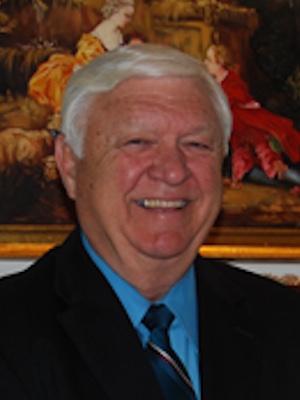
There can be little debate that religion is steadily declining in America.
The evidence of a decline includes the reduced number of individuals who identify as Christians and the alarming number of churches that are closing their doors.
What the religious community has been doing is not working and new approaches are needed. In the words of Albert Einstein: “The significant problems we face cannot be solved at the same level of thinking we were at when we created them.”
The church and religious leaders need to boldly challenge preconceptions and activities for a different level of thinking.
Churches would be well served to consider establishing and supporting change agents as a tool for reversing the current decline. When possible, these agents should be trusted members of the church who may be compared to entrepreneurs and would exploit change as an opportunity.
The requirements for change agents include vision, passion, motivation, risk-taking, creativity and confidence. These agents would view the glass as “half-full, not half-empty.” They also would be advocates for a “good plan” as opposed to the “best plan.”
The change agent’s reasoning for this advocacy is that by the time the “best plan” is ready for implementation, the situation possibly would have changed and the proposal no longer relevant.
Besides, success is usually not the result of great plans, but the work of motivated individuals who skillfully implement good plans. Calculated risk-taking is an attribute of the change agent.
Vision of the product and a pathway for navigating the opportunity is the starting point for change. Without a vision, any road will take change to a destination. However, it may not be the right destination.
The vision statement provides focus for the change team. It also is the message for communicating change to the broader audience.
People make or break change ventures and are the most important investment a church will make. People skills are critical for change agents as they engage and get the buy-in necessary for a successful venture.
It is essential that faith leaders share the successes with the people who made it happen. It generally is accepted that the hours of change agents, associates and the workforce may be long, and include stressful conditions.
In a very real sense, the need to make people feel and look good is critical for maintaining high levels of passions over time.
Passion is a hallmark of successful change. The agents of change believe in the products being produced and are almost evangelical in their passion for them. They have little or no hesitation for working long hours to meet tight deadlines.
The change agents generally receive personal satisfaction in doing something that is aligned with their self-motivations.
Self-motivation is another mark of change agents. It is difficult to imagine a successful agent of change that is not a self-starter.
It is not only challenging to start and manage a successful change operation; it also can be dangerous.
There is much less risk in working for an established church position than being an agent of change. However, there is something uniquely satisfying about engaging and surviving to fight another day and looking for the next opportunity.
Risk-taking is a dominant attribute of change agents and is part of the excitement. It may even be considered a rite of passage for full membership into the club of change agents.
Serial change agents are prepared to pick up the pieces, learn the lessons and seek the next opportunities when the effort doesn’t succeed. As Winston Churchill famously stated, “Success is just stumbling from failure to failure with no loss of enthusiasm.”
Creativity and innovation are the mother lodes of change. The change agent is always asking: What and where are the opportunities? How can the product be made better, with less cost and greater reliability?
A creative mindset enables the successful agent of change to find competitive advantages rather than competing on a level playing field for incremental improvements.
Confidence is a critical characteristic of a change agent. Early success is one of the keys for building and gaining confidence over time.
Confidence built on success is like a snowball rolling down the hill – the farther it goes, the larger and stronger it becomes. The confidence has a multiplying effect as others, in an ever-widening circle, become infected.
Continuing with business as usual does not qualify as a higher level of thinking.
Churches that want to create a more hopeful and vibrant future must establish and support change agents as a tool for higher levels of thinking to help reverse the adverse trends of decreasing membership.
Editor’s note: This article is part of an ongoing series focused on engaging the emerging generations of faith leaders. If you know anyone who might be interested, encourage them to submit an article for consideration to [email protected].
A third year Master of Divinity student at the Campbell University Divinity School. His life experiences include the Department of Defense, private industry, strategy, long range planning and lifelong learning.

